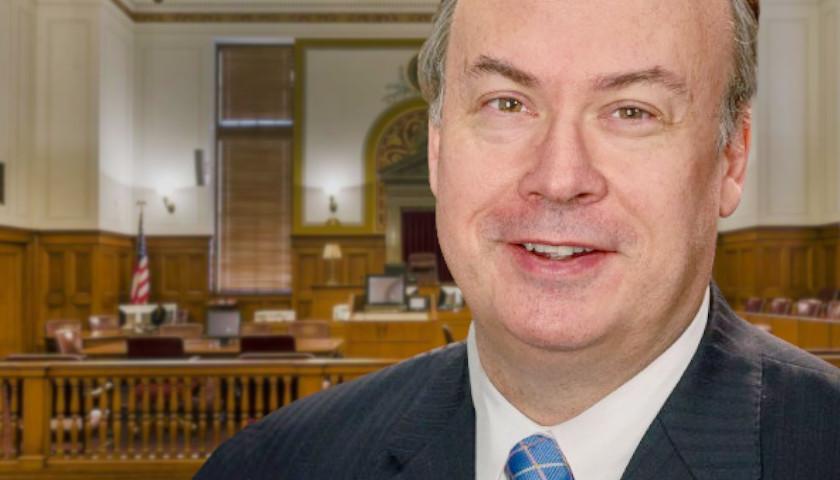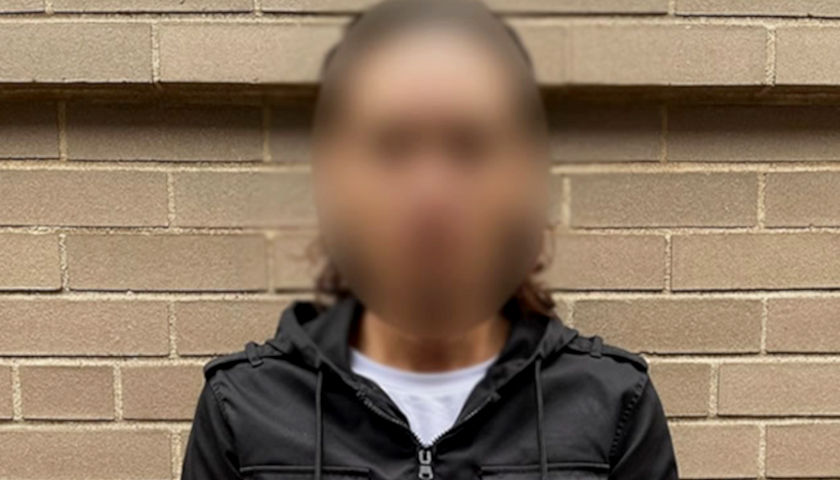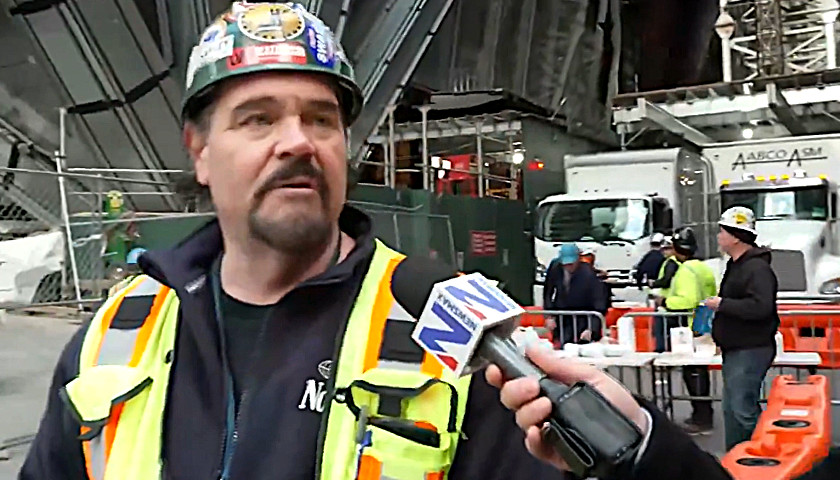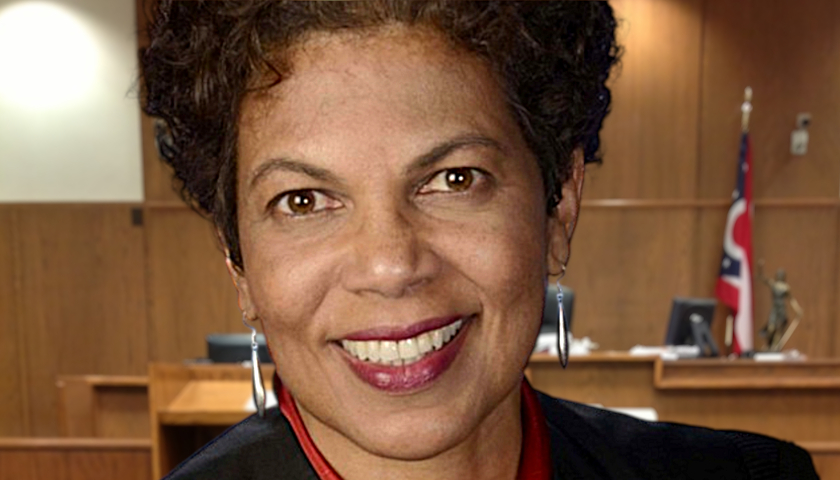Jeffrey Clark, an attorney who served at high levels of the Department of Justice under former President Donald Trump, is undergoing both prosecution and bar disciplinary proceedings for his slight involvement with the 2020 election challenges. The District of Columbia Bar, its disciplinary panel, and the federal trial court judge refused to let Clark remove the disciplinary proceedings to federal court, despite the fact there is a federal law providing for removal when the actions in question involve a federal official, so Clark filed an appeal with the D.C. Court of Appeals on Thursday.
Clark is being disciplined and prosecuted for drafting a letter to Georgia election officials after the 2020 election advising them of options the Georgia Legislature could take to address the concerns about election illegalities. The letter was never sent or even circulated.
Clark’s opening brief for his appeal laid out how in 2011, Congress amended the federal removal statute, 28 U.S.C. 1442(d)(1), to clarify that “any proceeding” against a federal official can be removed to federal court. The statute says both civil and criminal proceedings are removable. There are only four exceptions to that, listed in 28 U.S.C. 1445, and none of them are bar disciplinary proceedings.
However, the trial court judge dismissed Kolibash v. Comm. on Legal Ethics of W. Va. Bar, a 1989 similar case that held that a former U.S. Attorney could remove a West Virginia bar disciplinary case to federal court. If the lower court’s decision is allowed to stand, it would create a split among circuit courts, since Kolibash was decided by the Fourth Circuit Court of Appeals. The D.C. Court of Appeals has previously stated that bar disciplinary proceedings are “quasi-criminal” — so it would be a departure from its own prior ruling were it to side with the lower court.
Clark argued, “The removal of the Charges clearly meets every element of the statute.”
Section 1442(a)(1) provides as follows:
(a) [1] A civil action or criminal prosecution that is [2] commenced in a State court and that is [3] against or directed to any of the following [4] may be removed by them to the district court of the United States for the district and division embracing the place wherein it is pending: (1) The United States or any agency thereof [5] or any officer (or any person acting under that officer) of the United States or of any agency thereof, [6] in an official or individual capacity, [7] for or relating to any act under color of such office or on account of any right, title or authority claimed under any Act of Congress for the apprehension or punishment of criminals or the collection of the revenue.
The district court judge cited cases where removal was not allowed — but they did not invoke Section 1442. Clark said the district court was trying to carve out a new exception that did not exist. “Allowing the creation of such a third category of actions would constitute judges making, on their own authority, a fifth category of Section 1445 nonremovable action Congress did not itself see fit to create,” he said.
Additionally, Clark pointed out that it didn’t make sense to conduct the proceeding in a D.C. disciplinary court. “ Mr. Clark was a high-ranking Senate-confirmed official in direct privileged and confidential contact with the President,” the brief said. “He did not appear in a state court or in a state tribunal of any other kind. Nor did he appear, as it relates to the Charges, in a local D.C. court.”
Clark explained in the pleading that the bar complaint against him originated from U.S. Senator Dick Durbin (D-IL). D.C. Disciplinary Counsel Hamilton P. (“Phil”) Fox III attempted to serve Clark with a subpoena multiple times, which Clark was able to get rejected on Fifth Amendment and other privilege grounds. However, it took numerous pleadings to respond to Fox’s attempts.
Unlike some other Trump-appointed federal officials in the DOJ, Clark didn’t attempt to undermine Trump in the days leading up to January 6. Clark repeated the essence of his defense in the pleading, which is that “his views about irregularities in the presidential election held in Georgia were more aligned with President Trump than other Justice Department and White House Counsel’s Office colleagues. The gravamen of this defense is that holding or advancing such views in a confidential setting is no basis for bar discipline.”
He said, “No lawyers were disciplined for taking the losing position in Bush v. Gore and certainly no federal lawyers who took a position on a hotly contested election inside the federal government in a draft letter that was never sent have ever been disciplined before.”
Clark pointed out the unfairness of not removing the case.
“[A]t the initial Hearing Committee #12 stage, one of the three panel members will be a nonlawyer. No layperson can realistically be expected to deal properly with the important separation of powers issues this case involves, increasing the risk that Mr. Clark will be hometowned in a City that voted 92% for President Biden in 2020,” he said.
Clark unsuccessfully attempted to postpone the trial until after the prosecutions concluded, as is traditional when an attorney is being charged with both. In a similar case involving a DOJ attorney, Kevin Clinesmith, the ODC [Office of Disciplinary Counsel] didn’t start any disciplinary proceedings until Clinesmith was charged and pleaded guilty. Clinesmith “knowingly altered an email he knew would be a basis for a FISA warrant application in the FBI investigation into supposed connections between the Trump campaign and Russia,” Clark pointed out in a pleading.
The ODC also hasn’t begun bar disciplinary proceedings against Hunter Biden, despite the fact he was charged with three felonies in September.
Clark is requesting an oral argument. Although Clark is being targeted for actions he took while a federal official, it is unlikely the government will provide him with adequate legal representation, so he has been forced to come up with the money on his own to fend off the charges. He has raised just $64,277 so far out of the $500,000 needed to defend himself in the three matters. The pleadings in Clark’s case, along with those to disbar Rudy Giuliani, are located here.
– – –
Rachel Alexander is a reporter at The Arizona Sun Times and The Star News Network. Follow Rachel on Twitter / X. Email tips to [email protected].








